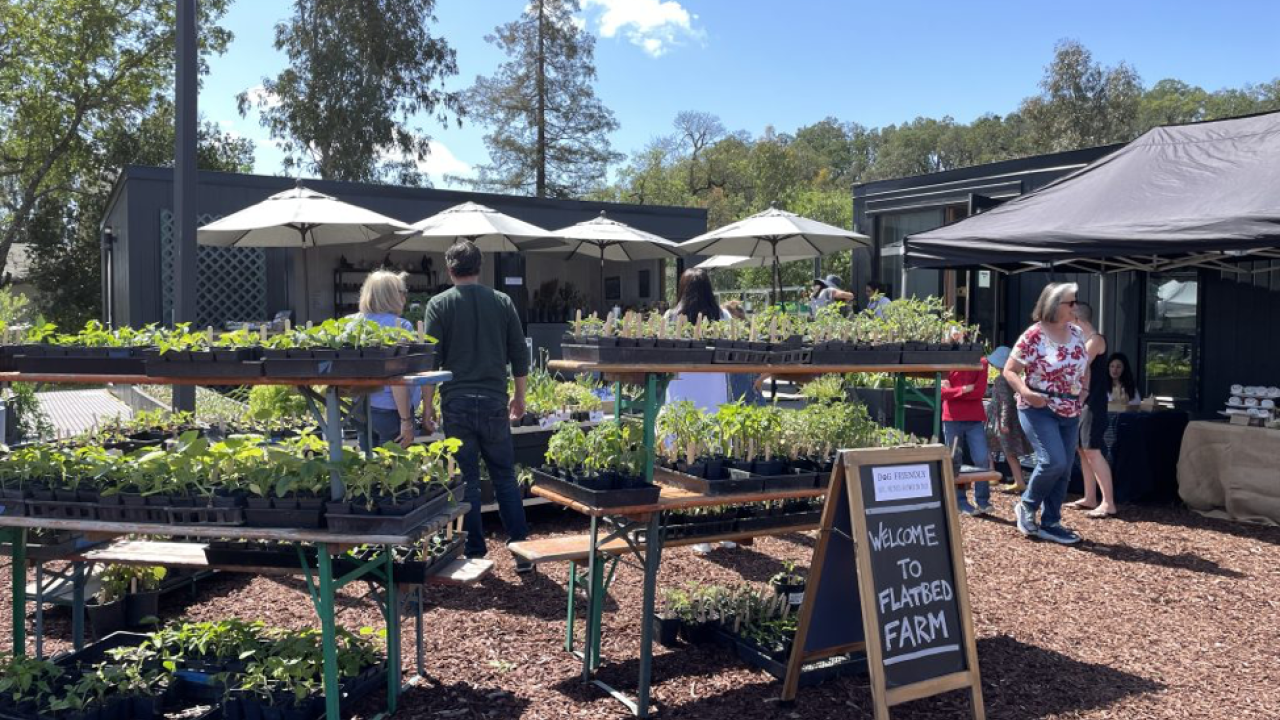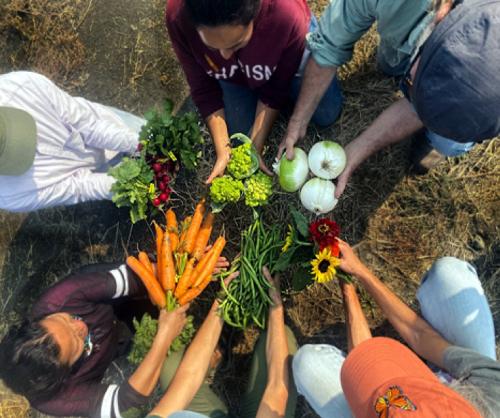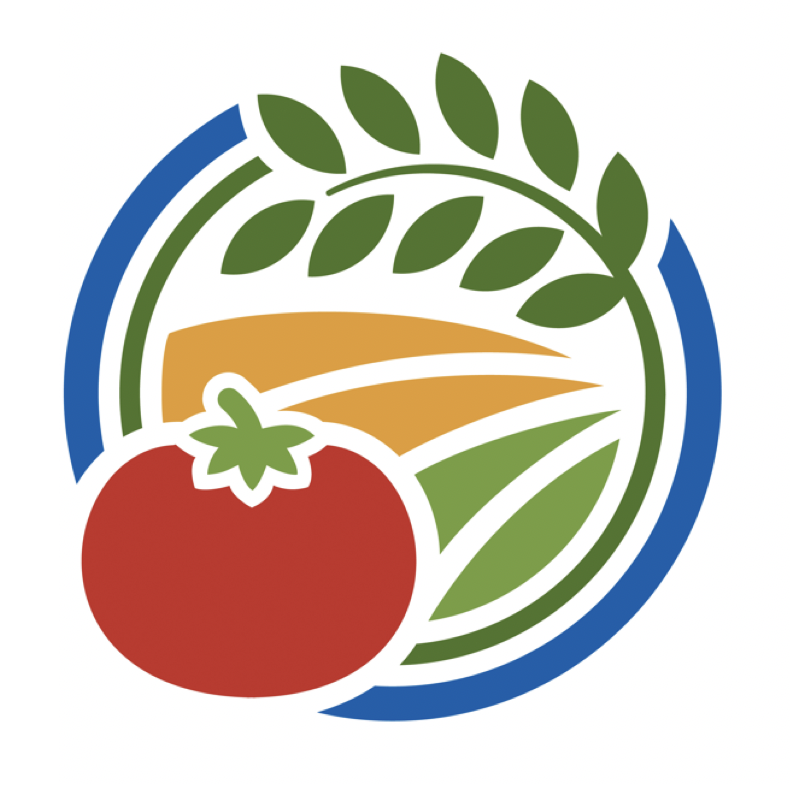CDFA funds UC SAREP agritourism project to connect farmers, consumers
Open Farm Passport program to offer public farm tours, demonstrations and workshops

To promote specialty crops and strengthen the industry through agritourism, California Department of Food and Agriculture has awarded nearly $450,000 from its Specialty Crop Block Grant Program for the California Open Farm Passport project. Rachael Callahan, statewide agritourism coordinator for the UC Sustainable Agriculture Research and Education Program, is leading the project, working with regional partners throughout the state to promote farmers through Open Farm events.
The California Open Farm Passport will invite the public to explore the bounty of local farms during regionally coordinated events throughout the year. Farm guests will have opportunities to learn about, taste and buy a diversity of crops from participating farmers around the state.
Starting in 2025, project partners will host 20 Open Farm events, featuring over 130 farms in nine counties, anticipated to reach over 10,000 consumers. Through these events, the public can visit farms to participate in activities such as farm tours, demonstrations and workshops that will increase their awareness of the diversity of California agricultural products and producers. Events will be posted at California Open Farm Passport.
Locally based groups throughout the state that support agritourism in their region have come together to collaborate on this project. Partners include Community Alliance with Family Farmers, FARMstead ED/SLO County Farm Trails, Open Farm Tours, Pleasants Valley Agricultural Association, Sierra Oro Farm Trail, Sonoma County Farm Trail, and UC Cooperative Extension advisors in Lassen, Modoc and Siskiyou counties.
“Partners on this project have been supporting agriculture in their regions through promoting agritourism and hosting Open Farm events for years, if not decades,” said Callahan. “This project provides the opportunity to enhance their work, create a space for them to learn from each other, and expand their reach by collaboratively marketing events as the California Open Farm Passport.”

This project will also build capacity by fostering a statewide network of agritourism groups to support local farmers and bolster the agritourism industry. Agritourism groups will receive trainings and learn from one another as they share best practices for hosting Open Farm events and other marketing strategies to promote agricultural producers to the public.

Importantly, the project will also document the benefits of Open Farm events for producers and visitors. The project will track product sales during and after the events to assess the impact of visiting a farm on purchasing behavior as well as measure any increase in visitor knowledge about California specialty crops.
“This project holds the potential to provide great benefits to specialty crop producers and the California agritourism industry,” Callahan said. “Producers will have opportunities for direct product sales and increased name recognition through marketing activities. At the same time, project partners will develop a statewide network to support their work and build towards a strong agritourism industry in California.”
Read the CDFA press release on 2024 Specialty Block Grant Program funding: California agriculture leads the nation in funding for specialty crops.
To learn more about agritourism in California, visit UC SAREP’s California Agritourism website.
